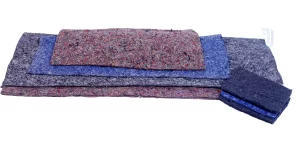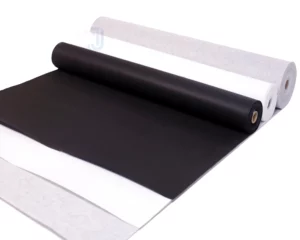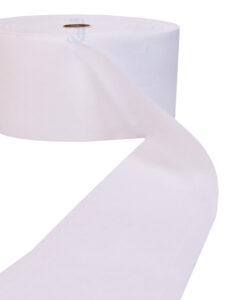
Jhanji Textiles Leading Non Woven Fabric Manufacturer in India
Jhanji Textiles is one of the trusted and leading manufacturers of high-quality non-woven fabrics in India.
Non-woven materials have several applications in the hospitality industry, offering practical solutions and enhancing the guest experience. Here are some common uses of non-woven fabrics in the hospitality industry:
Non-woven fabrics are widely used in the production of disposable products in the hospitality industry. Items such as disposable bed sheets, pillowcases, and blankets are made from non-woven materials. These products are convenient, hygienic, and provide a cost-effective solution for hotels, resorts, and other hospitality establishments.
Non-woven fabrics are utilized in the manufacturing of towels and bathrobes. Non-woven towels are lightweight, quick-drying, and often used in spa facilities or as disposable options. Non-woven bathrobes offer comfort, ease of maintenance, and are commonly used in wellness centers, hotels, and resorts.
Non-woven fabrics are used for cleaning and wiping purposes in the hospitality industry. Non-woven wipes, cleaning cloths, and dusters are effective for maintaining cleanliness in guest rooms, restaurants, and other areas. These products are disposable, absorbent, and offer excellent dirt and dust trapping capabilities.
Non-woven fabrics are employed in the production of table linens and napkins. Non-woven tablecloths and napkins provide an elegant appearance and can be designed in various colors and patterns. They offer convenience as they are often disposable or reusable, reducing the need for laundry services.
Non-woven materials are used for guest amenities such as slippers, shower caps, and laundry bags. Non-woven slippers provide comfort and are often disposable, ensuring cleanliness for guests. Non-woven shower caps offer convenience and hygiene in spa and hotel settings. Non-woven laundry bags provide a practical solution for guests to store their used clothing during their stay.
Non-woven fabrics are utilized in protective covers for mattresses, pillows, and furniture in the hospitality industry. These covers offer protection against stains, spills, allergens, and bed bugs. Non-woven protective covers are often breathable, water-resistant, and easy to clean, ensuring a hygienic and comfortable environment for guests.
The advantages of non-woven fabrics in the hospitality industry include their disposable or reusable options, hygienic properties, convenience, and cost-effectiveness. Non-woven materials are often lightweight, easy to handle, and provide practical solutions for maintaining cleanliness and guest comfort.
Additionally, non-woven fabrics can be customized with various textures, designs, and branding elements, allowing hospitality establishments to create a cohesive and visually appealing ambiance.
Overall, non-woven materials play a significant role in the hospitality industry, providing disposable products, towels, cleaning solutions, table linens, guest amenities, and protective covers. Their applications contribute to a clean, comfortable, and efficient environment for guests, ensuring a positive experience during their stay.
Posted onTrustindex verifies that the original source of the review is Google. Cool textile ??Posted onTrustindex verifies that the original source of the review is Google. Posted onTrustindex verifies that the original source of the review is Google. NicePosted onTrustindex verifies that the original source of the review is Google. Posted onTrustindex verifies that the original source of the review is Google. Posted onTrustindex verifies that the original source of the review is Google. Posted onTrustindex verifies that the original source of the review is Google.

Jhanji Textiles is one of the trusted and leading manufacturers of high-quality non-woven fabrics in India.

NONWOVEN FELT INCEPTION Felt Nonwovens were one of the oldest textile material to be used in

Applications and Advantages of Hot Air Through Non Wovens Hot Air through bonding is a technique
Near Cement Godown,
Industrial Area-C,
Kanganwal, Ludhiana –
141014, Punjab, India
Copyright © 2014-2025 Jhanji Textiles. All Rights Reserved | Created by Digital eSearch